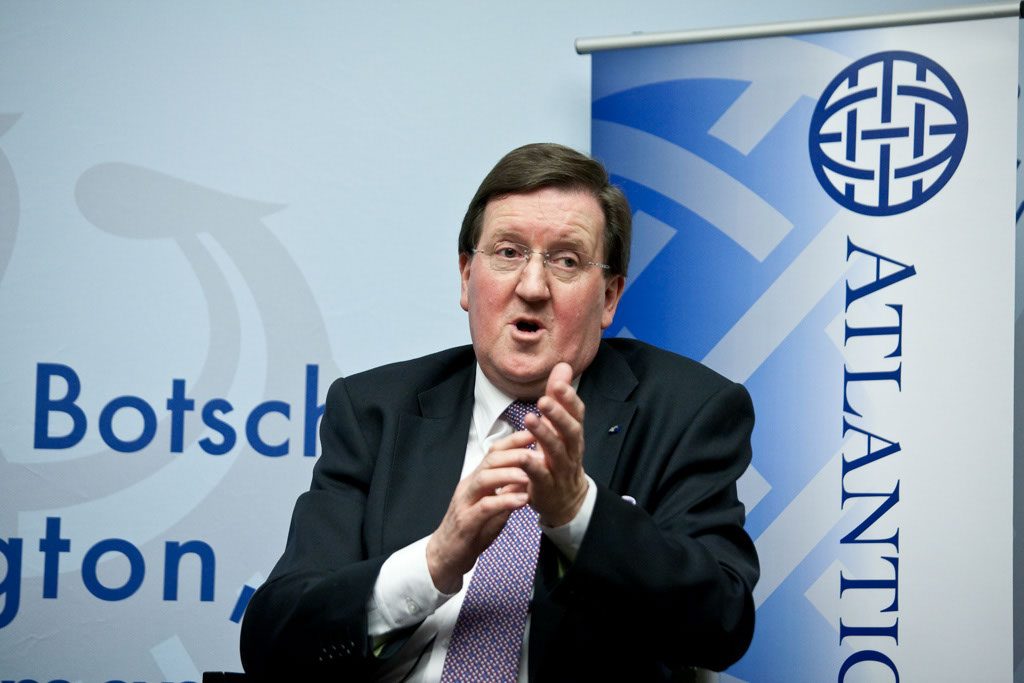
Lord Robertson believes that it is time for NATO to take "a less gentlemanly approach to capabilities" and to "be honest and brutal" that much of the current defense budgets are "a pure waste of taxpayer’s money."
Robertson minces no words: "Let’s have a grown-up argument around the NATO table on what is vital and what is dispensable in capabilities and stop the pretence that what was right for the long-gone Cold War is good enough to fight the Taliban."
In particular, he singled out the 10,000 main battle tanks, which he said would have a "negligible" role in "any conceivable future conflict." Because they are expensive to maintain and require large manpower costs, they "are an inexcusable drain on the scarce resources which are needed for more deployable troops, more helicopters and more Combat Support and of course, AGS -Alliance Ground Surveillance."
He went so far as to call it a "scandal" and said that term "applies as well to our European surplus of unusable fast jets and undeployable conscripts."
Relatedly, the former NATO Secretary General and British Defense Secretary reminded his Atlantic Council audience that "Exhortations to burden share are as old as NATO itself" and "remain a time consuming and spirit-sapping routine." Rather than rehashing the futile debates and endless call for others to do more, "It’s time to find a new mechanism."
He has one in mind.
Robertson notes that, "In the end the key allies bear the burden not just of costs but also of responsibility. It’s time for the devolution of some of these responsibilities." Rather than send out a blanket call for help, "The North Atlantic Council should say that individual nations should take the lead in some of the Alliance’s key efforts."
"One nation, for example could carry the initiative in relation to the Mediterranean countries. Another for relations with the membership applicant countries. We should revisit the idea I encouraged about lead nations driving the sharing of missing capabilities like heavy lift aircraft and helicopters." Robertson argues that, "The concept worked when we set up the Mobile Chemical Biological and Radiological battalion and the Czechs, with a history in the Warsaw Pact of both offensive and defensive CBW, accepted the lead responsibility for the historic first iteration."
There’s not much doubt that Robertson is correct about the poor spending priorities. Given that only a handful of the Allies are coming anywhere close to meeting their required 2 percent of GDP defense spending — a condition about which we can wail but that will continue nonetheless — it’s absurd to spend precious resources building and maintaining large fleets of weapons created to fight a peer competitor that no longer exists.
Likewise, it makes sense to figure out what the various NATO states can contribute operationally. Frankly, few of the recent inductees into the club will be able to field anything like modern militaries capable of conducting combined arms operations alongside the United States, Britain, and France any time soon. Rather than pretending otherwise, it would be much more prudent to have them specialize in activities where they can realistically contribute.
Similarly, the political cultures of some Allies are such that they are unlikely to put large numbers of their forces in harm’s way conducting sustained contingency operations out of area. The Alliance may as well adapt to that fact and count on those states to contribute in ways that are politically and culturally feasible. That may be a bitter pill to swallow, but it beats the present alternative of pseudo participation with caveats that render the forces useless to the operational commander.
James Joyner is managing editor of the Atlantic Council.
Image: robertson-makins-closeup.jpg
